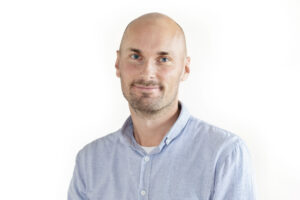Webinar: Knowledge sharing and networking in the social sector across the Nordic countries
Funktionshinder
7 maj 2024
The Nordic societies are built on a strong welfare model. Several structures in the social systems are similar, and so are the challenges. At a webinar on 27 May, we will look deeper into knowledge sharing in the social sector.
The webinar provides three keynote speeches sharing experiences and reflections about dissemination of knowledge and learning through networks across the Nordic countries.
- Hans Kloppenborg, chief research analyst at VIVE – the National Center for Social Science Research in Denmark, presents a report about the potentials and challenges of knowledge sharing about interventions in the social sector between the Nordic countries.
- Antra Carlsen, head coordinator of the Nordic Network for Adult Learning – NVL, talks about learning and governance of networks across the Nordic countries based on experiences from NVL.
- Kai Koivumäki, deputy director and operations manager at the Nordic Welfare Centre, talks about establishing and maintaining networks in the social sector across the Nordic countries.
Jakob Trane Ibsen, chief analyst at VIVE, will be moderating the webinar.
– For this webinar, we have selected three speakers who have several years of experience in the social field, who each provide their perspective and describe the Nordic way of sharing knowledge in networks, says Jakob Trane Ibsen.
In the past two decades, there has been a strong focus within the Nordic countries on developing effective interventions within the social field.
– There is a strong tradition in the Nordic countries of sharing experiences with different policy initiatives, in order to be inspired, to learn new approaches, and to assess existing approaches and initiatives. This is the case for many fields of welfare state policy, and very much the case for social policy, says Jakob Trane Ibsen.
Potential for more cooperation
The recent report Development of interventions in the social field in the Nordic countries by Hans Kloppenborg and Maria Røgeskov shows that there are important differences across the countries regarding for example how active state actors are in the development of specific interventions, how many resources are available for development activities and what specific criteria are used for assessing interventions.

They also find that there is potential for more cooperation between the Nordic countries about interventions in the social field.
– We hope that the report will stimulate curiosity among state actors in the Nordic countries on how the countries can learn from each other and inspire further Nordic cooperation on the development of interventions in the social field, says Hans Kloppenborg from VIVE.
Networks generating Nordic added value
For the Nordic Welfare Centre, networks are an important pillar in the work with generating new Nordic knowledge about welfare development. The Nordic institution has several types of networks, ranging from research networks to broad groups where national authorities, ministries and NGO:s are represented, to very practical networks for municipal employees within specific fields.
– Networks are of utmost importance for us. They are present when we plan and structure new projects, they participate in generating new knowledge, they ensure the quality of the work, and they help disseminate the results, says Kai Koivumäki from the Nordic Welfare Centre.
The value a network brings vary greatly depending on the purpose of the network. Several of the networks at the Nordic Welfare Centre produce results in the form of reports or events. A common result in all the networks is that the participants get new perspectives and an international aspect – something a colleague in your home country can’t give you.
– The results can for example be a solution used in another country, to be inspired by. Sometimes these solutions can be very tangible and possible to implement on a municipal level. And sometimes the network members notice that things are done in a similar way in the different countries, says Kai Koivumäki, adding that the Nordic network activities often are canalized into further bilateral work.
Practitioners and researchers from many fields are welcome
The target group of the webinar is practitioners and researchers within the social field, in particular people who have worked on developing new interventions, and the ways in which new scientific or practical knowledge is collected, systematized and utilized for example in national guidelines, national reports, and knowledge platforms.
– The webinar includes perspectives from a range of areas within the social field, such as child protection, people with disability, and support for adults with social problems. In this webinar we include adult learning as both an important subfield in itself, and as a case for learning, says Jakob Trane Ibsen at VIVE.
